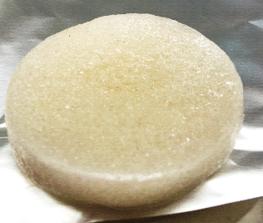Cell-free therapy for chronic skin wounds: delivery solutions for secretome and extracellular vesicles
Abstract
The wound healing process consists of a progression of phases, such as homeostasis, inflammation, proliferation, and remodeling. Consequently, any disruption in one of these phases can result in delayed wound healing. Indeed, delayed wound healing ultimately leads to the development of chronic wounds. Notably, recent insights suggest that wound healing phases are not distinct; instead, they overlap. Consequently, therapeutic approaches that simultaneously target all four phases hold promise for promoting the healing of chronic wounds.
STRATEGY
Being a mixture of anti-inflammatory and tropic factors, secretome may act by influencing all wound healing phases simultaneously. We are developing polymer-based delivery devices to enhance the efficacy of secretome-based therapy. These devices include hydrogel sponges of hyaluronic acid integrated with secretome, which have recently undegone in vivo proof-of-concept of efficacy. Additionally, we are working on waterbornes electrospun patches for the release of secretome and extracellular vesicles.
IMPACT
Given the aging population and the continued global threat of diabetes and obesity, it is expected that chronic wounds will continue to pose substantial clinical, social, and economic issues. Despite the variety of experimental wound healing treatments in the pipelines, only three have received approval from the FDA. Nonetheless, approximately 50% of chronic skin wounds still remain unresponsive to these treatments, highlighting the urgent need for innovative therapeutic approaches.
Joint project Fondazione Ri.MED/IRCCS ISMETT
Pipeline
-
CLINICAL
NEED -
DISEASES
ANALYSIS - DISCOVERY
-
PRECLINICAL
VALIDATION -
PRECLINICAL
DEVELOPMENT -
CLINICAL
STUDIES

Principal Investigator
Contact
Therapeutic area
Product
Advanced Therapy Medicinal Products (ATMP)/Biological drugs
Collaborations
- Istituto Mediterraneo per i Trapianti e Terapie ad Alta Specializzazione (IRCCS ISMETT), Palermo, Italy
- Laboratorio Polimeri Biocompatibili, dipartimento STEBICEF, Università degli Studi di Palermo, Palermo, Italy
- Fondazione IRET, Tecnopolo di Bologna, Bologna, Italy
- La Maddalena Cancer Center, Palermo, Italy
Scarica il pdf del progetto
